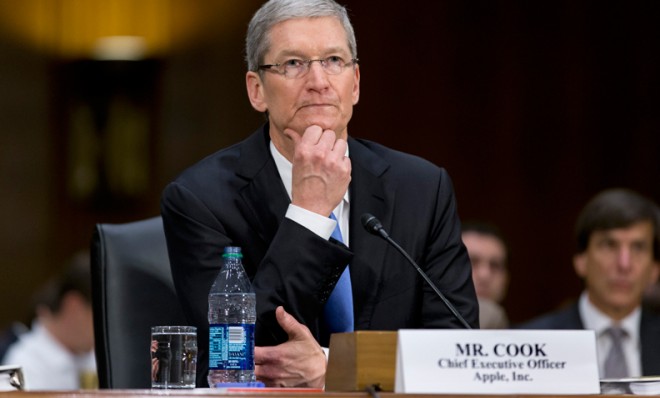Should America reform its corporate tax rules?
"It would be nice if America's greatest companies spent more time and resources designing ingenious things than designing ingenious tax schemes."

A free daily email with the biggest news stories of the day – and the best features from TheWeek.com
You are now subscribed
Your newsletter sign-up was successful
Americans should be outraged about corporate tax dodging, says John Cassidy at The New Yorker. Before Apple CEO Tim Cook testified before a Senate committee last week, we learned that his company needed only to set up a shell company in Ireland, where it has a minimal presence, "to avoid billions of dollars of U.S. taxes on income that was actually generated in this country." And Apple is not alone. Despite huge profits, "big businesses now shoulder a lot less of the tax burden than they used to." Before World War II, corporate income tax accounted for a third of U.S. tax revenues; today, it makes up less than 9 percent, and taxes on individual Americans have to cover the difference. In Britain, corporate tax avoidance has led consumers and politicians to chastise and even boycott companies such as Google and Starbucks for their shady tactics, but Americans remain largely unmoved. President Obama has said he wants to make big companies "pay their fair share," yet has done nothing about it, leaving the issue to lawmakers such as Sen. Carl Levin (D-Mich.) and Sen. John McCain (R-Ariz.). "If a 76-year-old Arizona conservative can get worked up about this stuff, why can't other Americans?"
Actually, we don't need to raise corporate taxes, says Matthew Yglesias at Slate. We need to abolish them. Instead of decrying the stockpiling of "largely inert" cash in offshore tax havens, Congress should be making it easier for companies to repatriate it. Once home, those dollars could be doled out to shareholders, executives, and employees, or used to acquire other companies. Then they could be effectively taxed, not with a loophole-ridden corporate tax, but directly through income or capital gains taxes, ideally hitting big shareholders and executives hardest. "It won't make as good political theater, but it'll be simpler and fairer in the end."
The corporate tax isn't going anywhere, says Kevin Roose at New York. Conservatives want it abolished, while progressives dream of replacing it with higher taxes on dividends, capital gains, and carbon emissions; none of those options is likely to earn bipartisan support. But abolishing the corporate tax isn't necessarily a good idea, anyway. It's actually "the best mechanism we have for imposing any oversight" on U.S. multinationals. Our universal tax code allows us to incentivize companies "to do things we deem good," like pushing suppliers to raise wages and improve workplace safety. "Give up on the corporate income tax and you lose a great mechanism for incentivizing ethical business practices."
The Week
Escape your echo chamber. Get the facts behind the news, plus analysis from multiple perspectives.

Sign up for The Week's Free Newsletters
From our morning news briefing to a weekly Good News Newsletter, get the best of The Week delivered directly to your inbox.
From our morning news briefing to a weekly Good News Newsletter, get the best of The Week delivered directly to your inbox.
But this isn't about corporate ethics, said Derek Thompson at The Atlantic. Multinational companies like GE, Google, and Apple "have mastered the global tax labyrinth to save money," and Congress is mistaken to think it can ever outsmart them and impose U.S. taxes on foreign earnings. Even if the U.S. collected taxes only on domestic profits — at, say, 25 percent — the big multinationals would just cook up new plans to stash money in countries with even lower rates. The real corporate tax problem — and the hardest one to address — is how much money and resources these companies waste engineering elaborate tax dodges. "It would, after all, be nice if America's greatest companies spent more time and resources designing ingenious things than designing ingenious tax schemes."
A free daily email with the biggest news stories of the day – and the best features from TheWeek.com
Sergio Hernandez is business editor of The Week's print edition. He has previously worked for The Daily, ProPublica, the Village Voice, and Gawker.
-
 Switzerland could vote to cap its population
Switzerland could vote to cap its populationUnder the Radar Swiss People’s Party proposes referendum on radical anti-immigration measure to limit residents to 10 million
-
 Political cartoons for February 15
Political cartoons for February 15Cartoons Sunday's political cartoons include political ventriloquism, Europe in the middle, and more
-
 The broken water companies failing England and Wales
The broken water companies failing England and WalesExplainer With rising bills, deteriorating river health and a lack of investment, regulators face an uphill battle to stabilise the industry